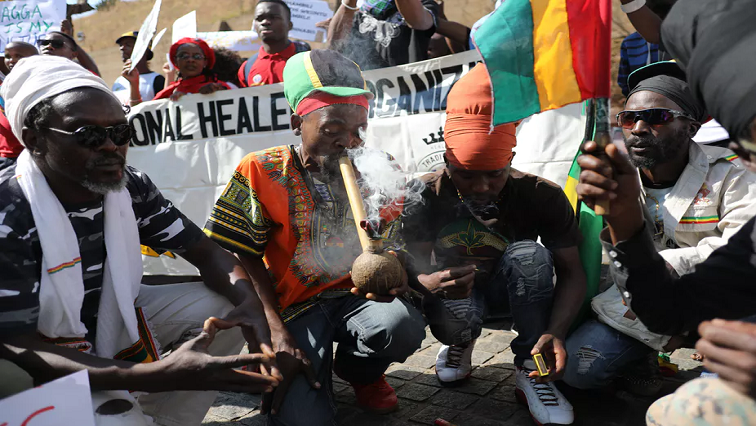Every year on 20 April marijuana advocates from Johannesburg to California celebrate cannabis culture. Last year South Africa’s Constitutional Court decriminalised the private growth and use of marijuana. This reverses a century of notoriously punitive criminal law in the country. Anine Kriegler says the ruling is an important victory for human rights and common sense.
South Africa’s Constitutional Court has delivered a unanimous judgment that certain parts of the country’s drug laws are inconsistent with the right to privacy. Adults are now allowed to use, possess or cultivate cannabis in private for their own personal consumption.
The court gave some broad guidelines about what this would mean in practice. But it has left the details to Parliament.
This is an important victory for human rights and common sense. It also matters to the almost 300 000 people who are arrested for drug-related crimes each year, mostly for possession of small amounts of cannabis.
But there is much more work to be done to design a humane and rational system to regulate cannabis. Some of the key issues that will need to be addressed include how far privacy extends, exactly what products should be regulated, how non-users will be protected, and what to do about the existing criminal market.
The measure of privacy
Significantly, this change came after a legal challenge in support of the right to privacy. It did not result from a popular vote or from a shift in government policy, based on public health principles. This means the new regulatory system will need to look quite different to two of the existing models in the world.
The first is the commercialised system developing in parts of the US, where businesses sell cannabis in much the same way as alcohol. The other is the medicalised model of Uruguay, where cannabis can be bought without prescription at pharmacies.
Other countries can offer more appropriate comparisons. Jamaica has set its limits at possession of 2oz (56.6g) and the cultivation of up to five plants on any premises. Colombia’s limits are 20g or up to 20 plants. Spain’s limits are rather less clear, and must take into account the circumstances of the case, but plants should not be visible from the street.
An important question is whether South Africa will allow cannabis social clubs – structures for the non-profit production and distribution of cannabis among a closed group of adults. This is the “Spanish model”, which is currently in a precarious legal position at home but enjoys significant expert support, either as a permanent position or as a transitional model while more formally regulated production systems are developed. Such clubs should enjoy the same protection on the basis of privacy, although their regulation introduces additional complications.
Parliamentarians will also have to decide on what substances will be included in the law. Will it extend to hashish (a concentrated resin made from cannabis), cannabis oils, or synthetic cannabinoids? And should the court’s reasoning not be extended to other substances that have been judged by experts to present less harm than alcohol?
Preventing harm to others
The prevention of impaired driving is a reasonable concern. Given the difficulty in physiologically measuring cannabis intoxication, there will be a need to formalise rules on field sobriety testing. Parliament will have to keep abreast of emerging evidence. Clear public messaging should be developed to communicate that cannabis-impaired driving is illegal and risky.
Another concern is the protection of minors. Regular cannabis use does seem to pose risks for adolescent brain development, so it is important that the country works out how best to discourage its consumption among or near children.
Commercialisation question
One criticism of the private cultivation and use model – such as the one in Spain – is that it forgoes the possible benefits of a more open regulated and commercialised system. This includes prospects for purity and potency controls, economic and employment growth, and tax revenues that can be earmarked for programmes to help mitigate cannabis-related risks and harms.
The approach envisioned by the South African Constitutional Court also has the disadvantage that it leaves intact the criminal market that supplies those who don’t meet its restrictions. Not every prospective cannabis user will be willing or reasonably able to grow their own plants or to join a cannabis club. So, there will still be a role for organised criminal groups to reap profits.
And there will still be a need for police enforcement. But it will involve even greater scope for discretion and possible corruption. The country will need to guard against a “net-widening” effect, where policy liberalisation ends up drawing even more people into conflict with the criminal justice system. South Africa will also need to interrogate whether it is still justifiable for people to be jailed for supplying a product that consumers have a right to possess.
Finally, there is the question of the many people who have been criminalised for an activity that is now considered an expression of a basic constitutional right. The court was clear that its judgment was not to be applied retrospectively. However, other jurisdictions – as in the US – have already begun offering pardons on request or discussing whether pardons should happen en masse.
Not a free-for-all, but an excellent start
Those cannabis campaigners and aficionados who were hoping for a Colorado-style boom in consumer options would have been disappointed. On balance, however, this may be a good thing, at least in the interim. Many policy reform experts warn of the dangers of over-commercialisation.
Putting the supply of a risky product in the hands of profit-maximising private interests with little interest in public health is not a recipe for success. In this, the history of alcohol and tobacco control provide a useful lesson.![]()
This story was first published in The Conversation in September 2018. Anine Kriegler: Researcher and Doctoral Candidate in Criminology, University of Cape Town






